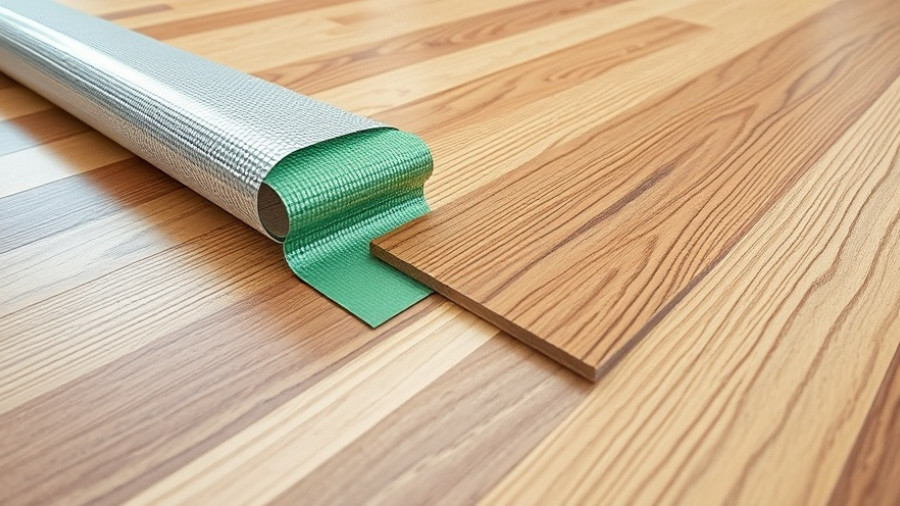
Choosing the Right Hardwood Floor Underlayment: A Homeowner's Guide
When embarking on a home renovation project, selecting the right underlayment for your hardwood flooring is crucial. It serves as the foundation, providing insulation, sound attenuation, and moisture protection. A well-chosen underlayment can ensure the longevity and comfort of your hardwood floors, making it a key element that should not be overlooked.
Understanding Underlayment Basics
Underlayment is a layer of material installed beneath your hardwood flooring, creating a smoother, more stable surface. It improves the overall performance of your flooring while offering benefits that range from sound reduction to insulation against temperature changes. Common materials include foam, felt, cork, and rubber, each catering to different needs and preferences.
The Importance of Selecting the Right Type
Making the right decision isn’t just about aesthetics; it’s about matching the underlayment to your specific needs. For instance, if you're laying flooring in a basement, moisture resistance is paramount. Foam underlayment with a built-in vapor barrier is beneficial here, while cork underlayment's natural antimicrobial properties make it ideal for humid areas.
Top Picks for Hardwood Floor Underlayment
Here’s a closer look at some popular underlayment options:
- TrafficMASTER Polyethylene Foam – This budget-friendly option is lightweight yet effective, providing flexibility and moisture barrier protection.
- Roberts AirGuard Floor Underlayment – Perfect for laminate, this material offers cushioning and durability without compromising on ease of installation.
- DUROCK Cement Backer Board – Ideal for tiles, it provides excellent moisture resistance while also smoothing out the subfloor underneath.
- Eco Cork Foam Premium Underlayment – Its waterproof and antimicrobial properties make it an ideal choice for high-traffic areas.
- DMX 1 Step 2.0 – Designed specifically for vinyl, this option fights moisture with an effective setup for various floor types.
How Underlayment Affects Comfort and Performance
Quality underlayment significantly enhances the comfort of your flooring. It softens the hard surface underfoot, making walking a much more pleasant experience. This cushioning effect is especially welcome in busy family areas where foot traffic is high. Additionally, underlayment can play a vital role in soundproofing, which is essential in multi-story homes.
Cost Considerations for Different Underlayment Options
The costs of underlayment vary widely based on material and thickness, ranging anywhere from $0.30 to over $2.50 per square foot. While it may be tempting to choose a cheaper option, investing in quality underlayment can save you money in the long run by preventing repairs due to moisture damage or wear and tear. Remember, the investment in underlayment is often a fraction of the total flooring cost, making it an essential element of any flooring project.
Installation Tips for Success
Proper installation of underlayment can vastly affect the performance of your hardwood floors. Ensure that the subfloor is clean and dry before laying the underlayment. Following the manufacturer's instructions regarding thickness and compatibility with your specific flooring product is crucial. Additionally, be mindful of local moisture levels, as different climates might dictate different approaches to underlayment installation.
Conclusion: Take Action for Lasting Results
In summary, investing in the right hardwood floor underlayment is essential for ensuring long-lasting comfort and performance. The benefits are manifold— from sound reduction to moisture control. Whether you're a DIY enthusiast or a seasoned professional, understanding these elements can dramatically enhance the quality of your home environment. So, make informed decisions and choose the underlayment that’s right for you to enjoy beautiful floors for years to come.
Ready to enhance your home? Start exploring your hardwood floor options today!
 Add Row
Add Row  Add
Add 




Write A Comment